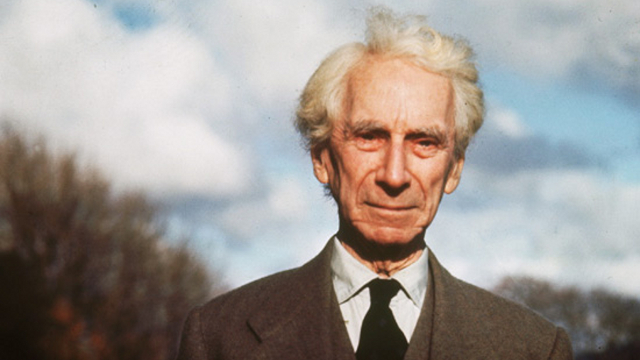Happy New year !
The notion of free will is a very interesting one, and as we are living in a time where people are talking of robot intelligence and where people are still adamant about religion and what they call or perceive as “freedom”, I think it’s only fair to remind this brilliant excerpt from “Religion and Science” by the late Bertrand Russell, that among all the great things he wrote struck me with its clarity and depth. (yeah, I’m bootstrapping on Maria Popova’s Brainpickings !)
(yeah, I’m bootstrapping on Maria Popova’s Brainpickings !)
Psychology and physiology, in so far as they bear upon the question of free will, tend to make it improbable. Work on internal secretions, increased knowledge of function of different part of the brain, Pavlov’s investigations of conditioned reflexes, and the psycho-analytic study of the effects of repressed memories and desires, have all contributed to the discovery of causal laws governing mental phenomena. None of them, of course, have disproved the possibility of free will, but the have made it highly probable that, if uncaused volitions do ever occur, they are very rare.
The emotional importance supposed to belong to free will seems to me to rest mainly upon certain confusions of thought. People imagine that, if the will has causes, they may be compelled to things that they do not wish to do. This, of course, is a mistake; the wish is the cause of action, even if the wish itself has causes. We cannot do what we would rather not do, but it seems unreasonable to complain about this limitation. It is unpleasant when our wishes are thwarted, but this is no more likely to happen if they are caused than if they are uncaused. Nor does determinism warrant the feeling that we are important. Power consists in being able to have intended effects, and this is neither increased or diminished by the discovery of causes of our intentions.
Believers in free will always, in another mental compartment, believe simultaneously that volitions have causes. They think, for example, that virtue can be inculcated by a good upbringing, and that religious education is very useful to morals. They believe that sermons do good, and that moral exhortation may be beneficial. Now it is obvious that, if virtuous volitions are uncaused, we cannot do anything whatever to promote them. Top the extent to which a man believes that it is in his power, or in any man’s power, to promote desirable behaviors in others, to that extent he believes in psychological causation and not in free will. In practice, the whole of our dealings with each other are based upon the assumption that men’s actions result from antecedent circumstances. Political propaganda, the criminal law, the writing of books urging this or that line of action, would all lose their raison d’être if they had no effect upon what people do. The implication of the free-will doctrine are not realized by those who hold it. We say “why did you do it?” and expect the answer to mention beliefs and desires which caused action. When a man does not himself know why he acted as he did, we may search his unconscious for a cause, but it never occurs to us that there may have been no cause.It is said that introspection makes us immediately aware of free will. In so far as this is taken in a sense which precludes causation, it is a mere mistake. What we know is that, when we have made a choice, we could have chosen otherwise- if we have wanted to do so. But we cannot know by mere introspection whether there were causes of our wanting to do what we did. In the case of actions which are very rational, we may know their causes. When we take legal or medical or financial advice and act upon it, we know that the advice is the cause of our action. But in general the causes of acts are not to be discovered by introspection; they are to be discovered, like those of other events, by observing their antecedents and discovering some law of consequence.It should be said, further, that the notion of “will” is very obscure, and is probably one which would disappear from scientific psychology. Most of our actions are not preceded by anything that feels like an act of will; it is a form of mental disease to be unable to do simple things without a previous decision. We may, for instance, decide to walk to a certain place, and then, if we know the way, the putting of one foot before another until we arrive proceeds of itself. It is only the original decision that is felt to involve “will”. When we decide after deliberation, two or more possibilities have been in our mind, each more or less repulsive; in the end, one has proved the most attractive, and has overpowered the others. When one tries to discover volition by introspection, one finds a sense of muscular tenseness, and sometimes an emphatic sentence: “I will do this”. But I, for one, cannot find myself any specific kind of mental occurrence that I could call “will.”It would, of course, be absurd to deny the distinction between “voluntary” and “involuntary” acts. The beating of the heart is wholly involuntary; breathing, yawning, sneezing, and so on, are involuntary, but can (within limits) be controlled by voluntary action; such bodily movements as walking and talking are wholly voluntary. The muscles concerned with voluntary actions are of a different kind from those that control such matters as the beating of the heart. Voluntary actions can be caused by “mental” antecedents. But there is no reason-or so, at least, it seems to me- to regard these “mental” antecedents as a peculiar class of occurrences such as “volitions” are supposed to be. […]